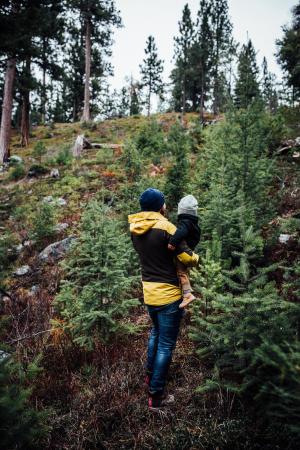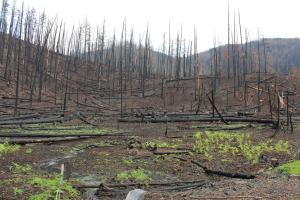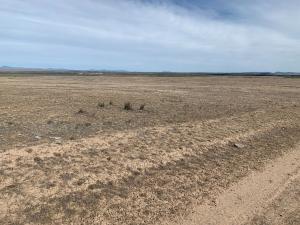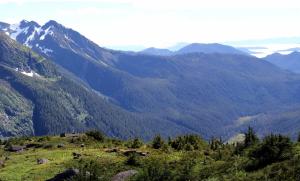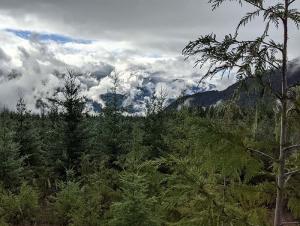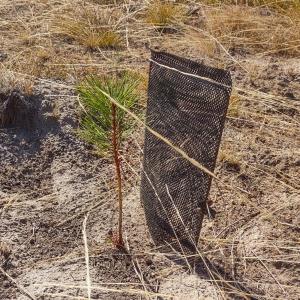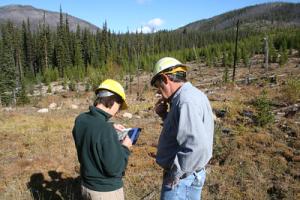Climate Change
Global average temperatures are increasing at greater rates than have occurred over the past million years of Earth's history. Changes in climate have serious implications for forest, rangeland, and aquatic ecosystems and the benefits we get from them. Our climate change research includes tools and information about ecosystem response, adaptation strategies and decision support for land management, and the impacts of a changing climate on things people care about, like wildlife habitat, water quality, flood control, wildfire hazard, and American Indian subsistence resources.
Featured Work
- Carbon Dynamics Research for Land and Watershed Managers (December 2022)
- Science Spotlight: Climate Change Research (September 2022)
Featured Research Center

The Northwest Climate Hub serves Alaska, Idaho, Oregon, and Washington by delivering science-based, region-specific technologies and practical information that supports climate-informed decision-making and sustainable and productive working landscapes in the Northwest. One of 10 regional hubs managed by the U.S. Department of Agriculture, the Northwest Climate Hub provides regional assessments, science syntheses, technical support, tool development, education, and outreach to farmers, ranchers, forest landowners, Native American Tribes, Alaska Natives, natural resource managers and technology transfer specialists. The Northwest Climate Hub is headquartered at the Pacific Northwest Research Station's Olympia Forestry Sciences Laboratory, with additional staff in Portland, Oregon.
Featured Publications
- Climate Change Vulnerability and Adaptation in the Columbia River Gorge National Scenic Area, Mount Hood National Forest, and Willamette National Forest. This assessment report examines the vulnerability of natural resources in southern Washington and central Oregon to climate change and offers adaptation options that minimize negative impacts of climate change and facilitate the transition of ecosystems in this region to a warmer climate. The assessment focuses on water resources and infrastructure, fisheries, vegetation, wildlife, recreation, and ecosystem services.
- Climate Change Vulnerability and Adaptation in Southwest Oregon. This assessment report identifies climate change issues relevant to resource management in southwest Oregon and presents solutions that can minimize the undesirable effects of climate change.
- Adaptation Resources for Agriculture: Responding to Changes in Climate in Alaska. This workbook reviews climate change effects on agriculture in Alaska and provides information to help producers adapt their operations by considering different strategies to increase resilience to weather extremes, improve soil health, and address climate-related challenges.
- A Climate Resilience Guide for Small Forest Landowners in Western Washington. This guide—geared toward small forest landowners in western Washington and organizations such as nonprofits, local and state governments, and conservation districts—describes climate impacts on forests and potential management actions that landowners can take to increase resilience to climate change on their land.
- Going with the Flow: Beaver-Focused Stream Restoration on Western Rangelands. Modern water resource challenges, including increased drought frequency and changes to the timing and availability of water for seasonal irrigation and stock watering needs, have become commonplace. These water resource changes are a particular concern for western rangeland managers tasked with protecting and recovering sensitive fish species and for landowners who rely on seasonal water and quality forage availability to support cattle operations. This story map captures lessons-learned from several restoration projects throughout the West using five case studies about beaver-inspired restoration practices that mimic beaver habitat and dams.
Projects
-
Project
-
Project
-
Project
-
Project
-
Project
-
Project
-
Project
-
Project
-
Project
-
Project
-
Project
-
Project
-
Project
-
Project
-
Project
-
Project
-
Project
-
Project
-
Project
-
Project
-
Project
-
Project
-
Project
-
Project
-
Project
-
Project
-
Project
-
Project
-
Project
-
Project

















